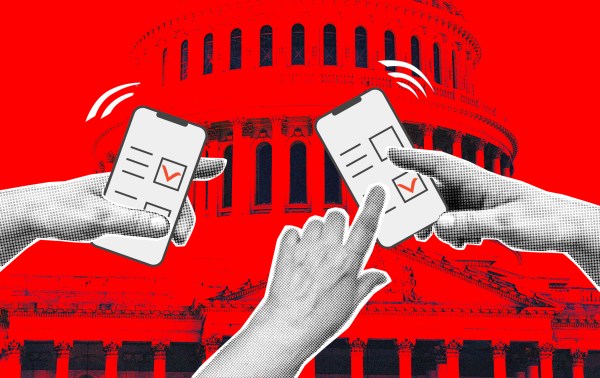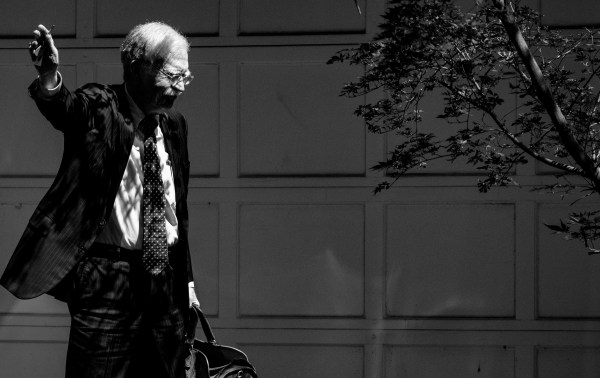Randi Weingarten, the head of the American Federation of Teachers, and Lee Saunders, the president of the American Federation of State, County and Municipal Employees, resigned from their positions on the Democratic National Committee. This could be great news.
I don’t really know, though, because the actual reasons remain murky.
“While I am proud to be a Democrat,” Weingarten told DNC chair Ken Martin in her resignation letter, “I appear to be out of step with the leadership you are forging, and I do not want to be the one who keeps questioning why we are not enlarging our tent and actively trying to engage more and more of our communities.”
Color me skeptical that this is the real reason. I doubt Martin’s stated policy is to shrink the Democratic tent or refrain from engaging with “more and more of our communities”—whatever that means. Much of the reporting on the resignations revolves around old-fashioned Democratic disarray and internal power struggles. Weingarten and Saunders had supported Martin’s opponent in the recent election of a new DNC chair. That may be all there is to it, which would be shame.
That’s because the Democratic Party is a mess. Don’t get me wrong, so is the Republican Party, but for different reasons. The GOP is also in charge, controlling the White House and both branches of Congress. Moreover, for all the problems the Republican Party has, it has the wind at its back and remains more popular than the Democrats. In 2024, it made impressive strides with many core Democratic demographic constituencies, including black, Hispanic, and young voters.
The GOP has a story to tell voters. You may not like the story. You may think it’s not actually following through on the vision it’s selling, but Republicans know how to articulate what they’re for. Democrats not so much.
Historically, the Democratic Party is the party of government. There’s nothing inherently wrong with that. As President Franklin D. Roosevelt said, “It is the purpose of government to see that not only the legitimate interests of the few are protected but that the welfare and rights of the many are conserved.”
The Democratic Party has gotten itself into a mess because it’s evolved—or devolved—into a party fairly perceived as more concerned with the interests of the few and less concerned with the welfare and rights of the many. That was the underlying message of that ad the Trump campaign played more than any other (30,000 times!). It showed a clip of Kamala Harris explaining her support for government-funded sex change surgeries for illegal immigrants. It closed with: “She’s for they/them. He’s for you.” The anti-transgender message was obvious (and broadly popular), but the subtext was more important: Harris is for niche issues that excite activists while Trump is for the meat-and-potatoes concerns of the common American.
Few groups represent the Democrats’ broader problem better than groups like Weingarten’s AFT (teachers unions typically make up about 1 in 10 of the delegates at Democratic conventions). During the height of the COVID-19 pandemic, Weingarten consistently put the needs of union members over the general welfare, while insisting she was putting children first. She opposed reopening schools long after it was remotely necessary to operate remotely and successfully badgered Joe Biden to violate his pledge to reopen them quickly.
AFT and other public-sector unions, like AFSME, are an ATM for the Democratic Party. And the Democratic Party is responsive to donors. For instance, one of the first things President Biden did when he took office was issue an executive order repealing a Trump administration policy that restricted government employees from spending more than 25 percent of their time doing union business while on the job. He put the number back up to 100 percent.
There’s a reason FDR disliked the idea of unionizing government employees. The government shouldn’t be captured by special interests that use state power to further their ends over the general welfare. Democrats instinctively understand this when it comes to corporate interests but seem blind to it for members of their own coalition. Biden’s effort to lawlessly cancel student debt wasn’t just terrible policy; it also sent the signal that the party put the interests of the few above the many.
As a conservative, I don’t typically root for the Democratic Party. But I’ve come to realize that our system depends on two healthy, sane, parties competing over best policies. When one party goes off the rails, it gives permission for the other party to do likewise. If the departure of Weingarten and Saunders is a sign the party is coming to realize that, that’s good news indeed.









Please note that we at The Dispatch hold ourselves, our work, and our commenters to a higher standard than other places on the internet. We welcome comments that foster genuine debate or discussion—including comments critical of us or our work—but responses that include ad hominem attacks on fellow Dispatch members or are intended to stoke fear and anger may be moderated.
With your membership, you only have the ability to comment on The Morning Dispatch articles. Consider upgrading to join the conversation everywhere.